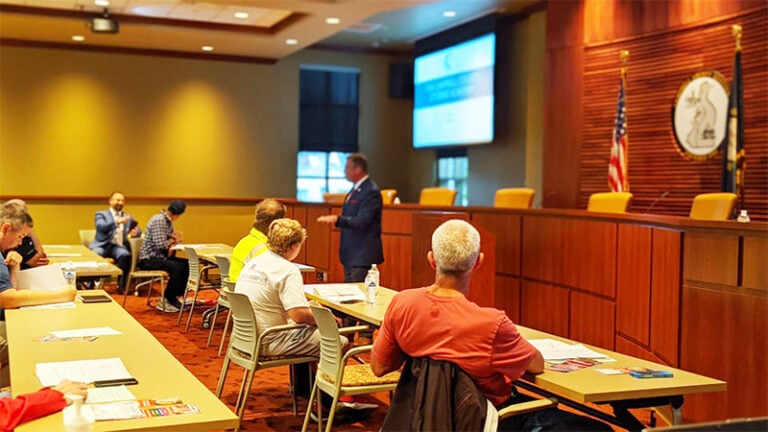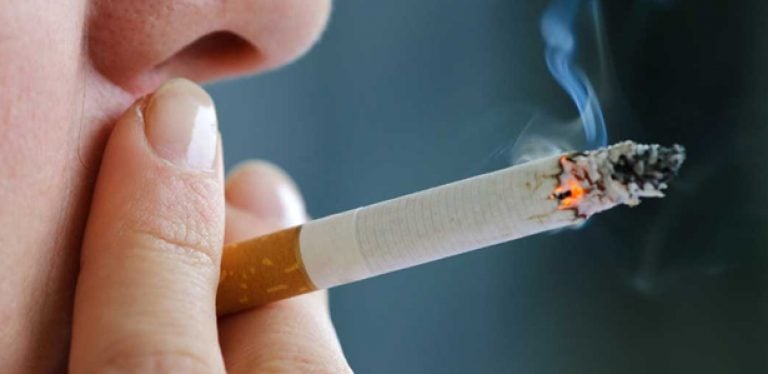By Mary Kuhlman
Public News Service
A long-awaited vote is expected this week on the future of water-quality standards that impact nearly two-thirds of Kentucky’s waterways. The Ohio River Valley Water Sanitation Commission is reconsidering its role in setting limits on pollution discharges in the river.
The agency has been around for nearly 60 years and is comprised of commissioners from eight states, including Kentucky. With the Environmental Protection Agency and states setting their own standards, the argument is that ORSANCO could focus its efforts on monitoring and spill response.

Kevin Hengehold with Kentuckians for the Commonwealth contended that would result in a patchwork of weaker standards among states.
“According to ORSANCO’s own research, there are 188 chemicals that they regulated that EPA and other states don’t regulate,” Hengehold said. “And there are 252 chemicals that they regulate more stringently than the EPA and other states.”
Amid federal efforts to weaken clean-water protections, Hengehold said this is no time for ORSANCO to shed its duties.
The commission will meet Thursday, February 14, in Covington, and could decide on another proposal that would strengthen the standards and ensure they are consistently enforced by states. An initial vote was expected in October but was postponed for further review after a flurry of public comments in opposition.
The meeting will start at 9 a.m. at 10 East RiverCenter Blvd. in Covington, the address of the Embassy Suites Hotel.
The Ohio River is consistently ranked as the most polluted in the country, with an estimated 30 million pounds of toxic chemicals illegally dumped into its waters each year. As vice chair of the Environmental Justice Committee with the Democratic Socialists of America in Northern Kentucky, Eira Tansey said she believes some of ORSANCO’s members aren’t acting in the river’s best interests.
“Many of them have ties to industry that often put many pollutants into the Ohio River,” Tansey said. “So it seems to me that they are more interested in representing the interests of industry than they are in protecting health and safety for all users of the Ohio River.”
Mary Joyce Moeller is a Sister of Divine Providence in Melbourne. She said she’s greatly concerned about the pollutants and toxins in the Ohio River that can harm health and even cause cancer.
“It’s a moral issue, it’s a life issue, and not just for us living today but for our children, our grandchildren and future generations and also for the effect on fish and marine life,” Moeller said. “So I really encourage people to get involved and speak out.”
More than 4 million people live within the Ohio River Basin in Kentucky.


















Makes sense and I agree for the most part. I’m sure there is a little bit of chemicals getting into the waterways but nothing to be concerned about. If you look up that socialists website she has some very radical, aggressive, hateful, sexist, and racists views. She wrote an article on that Covington MAGA hat situation with the Indian and basically calls everyone in northern Kentucky racist, just for being white.
Tribune, please don’t cite racist, hateful people.
I hope that as your grow you will keep neutral and un-biased. And If you do quote a radical from one side of the aisle or the other, please include in that same article and different view point from the opposite side.
It’s tough if you think about it because these environmental people don’t have to worry about their jobs. They either work for the government, a non profit, for an agency, for a university, or for a quasi-government regulator and can’t be put out of business (for now) or have there wages or retirements lowered.
They don’t produce any goods or services that contribute to a market or society or for the good of the people. They really just try to bring down productions and drive up costs of goods, and lower people wages and job opportunities by doing so. So much for academia
And they don’t have to care about rising prices of goods because they don’t drive cars, they don’t use electricity, they make their own clothes, they don’t use medicine, and only eat out of the gardens in their back yards.
The majority of people out there are just working a honest living in the private industry and keep losing jobs or losing pay because environmental people keep beating up there employers for no good reason. These same people enjoy the simple things in life like electricity, power, cars, houses, food to stay healthy, water, clothes, medicine, and basically anything else that is a product of capitalism and fossil fuel energy that is mostly clean. I don’t think people want to give up on these things and go back in time a couple hundred years. They wish like anyone else that we could have all renewables, but increasing utility bills by 300%+, having large scale power outages for prolonged periods of time, and the basic fact that it’s technologically and physically impossible to have even ½ of our energy come from renewables isn’t what they want to try for.
Wow, we’re quoting the Democratic Socialists of America now…. Socialists?….. Seriously?….. The Tribune has officially gone down a few notches for me in terms of credibility and who they cite.
People seriously believe there are still chemicals being “dumped” into the river, or that industries want to dump chemicals into the river? I would love to see an actual article, fact, allowance under the law, or anything else close to that, that shows legit chemicals can be directly discharged into the river by any industry today.
The only chemicals that end up in the river are from run off. That run off being fertilizer people use in their yards, the soap they use when they wash their cars in their driveways, any minute (like .0001%) chemicals that might wash off the site of an industry, not discharged in any way, just a tiny, tiny bit of run off if a few drops of something spill on the ground. Even at that, regulation pertaining to any storm run off has gone through the roof in recent time.
And that tonnage that is dumped “Illegally” is hard to fathom as true at all. I could see some hillbillies throwing old gas cans or paint buckets into the river at their riverside camp. But, in no way is it remotely believable that any industry or worthwhile players are driving thousands of tractor trailers worth of chemicals to a “secret” spot along the river and dumping chemicals in it illegally…
The river is cleaner than its ever been. This is all about regulation, extra tax and permit dollars, and money. The greenies pushing this all have jobs tied into this regulation many of which are making a fortune off it. They know it doesn’t truly do an ounce of good or actually prevents chemicals from being in the river by pushing the regulatory bar any higher. The bar was set exactly where it needs to be years ago. They’re pretty much down to wanting to outlaw washing your car with soap in your driveway, not using windex to clean the outside of your windows, or using Scott’s fertilizer or weed killer to take care of your lawn.
All this is, is regulators getting upset that they will be out of a job soon because the regulation is precisely where it needs to be now, and protects everyone. You did your job, the river is clean, people are safe and healthy, now please just pat yourself on the back and move on.